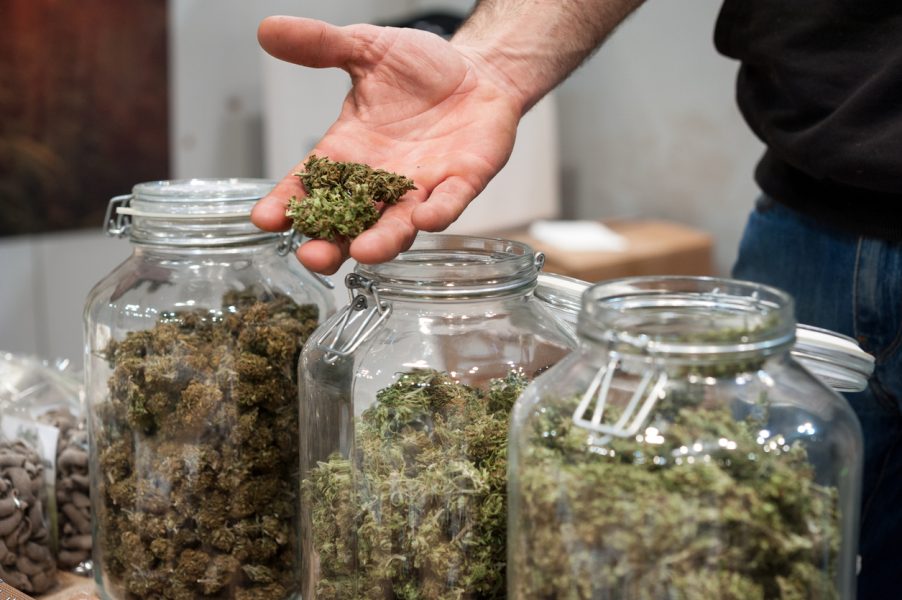
Cannabis legalised in Thailand, conditions apply; find out more
In a bid to boost its economy and generate more employment, Thailand has decided to shed its image of a strict anti-drug country and has legalised the growing and possession of cannabis and its consumption in food and drinks, becoming the first Asian country to do so.

In a bid to boost its economy and generate more employment, Thailand has decided to shed its image of a strict anti-drug country and has legalised the growing and possession of cannabis and its consumption in food and drinks, becoming the first Asian country to do so.
Even as thousands of citizens and tourists erupted in euphoria, Thailand’s government has warned that cannabis can have upto 0.2 percent of tetrahydrocannabinol (THC), the chemical that makes people high, and it would be for medical purposes and in use in food, drinks and cosmetics.
Those using it for recreational purposes could still be considered a nuisance, and jailed for 3 months and fined 25,000 Thai baht ($780).
There are proposals to allow the use of the drug for recreational purposes in restricted areas in a bid to boost tourism. Almost 70% of the 39.9 million tourists who visited Thailand did it for the purpose of health and wellness in 2022.
If recreational cannabis is allowed, it can create a market worth $424m by 2024, a cannabis research firm Prohibition Partners has said.
With its tropical climate ideal for cannabis cultivation, Thailand is also looking to boost its farmers’ incomes.
A govt push
Thailand’s tropical climate is ideal for growing cannabis, and the government wants to make a splash in the market for medical cannabis. It is projected to boost everything from national income to small farmers’ livelihoods.
Public health minister Anutin Charnvirakul is distributing 1 million cannabis seedlings to encourage farmers to grow the plant.
Charnvirakul said that the move would also mean that people can grow medical-grade marijuana in their households for their own personal use or for small-scale commercial enterprise.
Also read: Cannabis illegal, but Hong Kong opens its first cannabidiol cafe
“This will enable people and the government to generate more than 10 billion baht (around INR 22,27,000) per year in revenue from marijuana and hemp,” Anutin wrote in his Facebook post.
For some time, Thailand has been looking to promote the cultivation of cannabis, and had legalised the medical use of the plant in 2018, going against its long-time image of a strict anti-drug state.
Activists believe that the over 4,000 people who are facing various charges related to use of marijuana will see their charges dropped.
This is however going to have an impact on the region as neighbouring countries such as Singapore, Indonesia and Malaysia have strict rules against drugs, that goes even up to death penalty.
Charnvirakul felt that with the right awareness, cannabis can turn into gold. “If we have the right awareness, cannabis is like gold, something valuable, and should be promoted,” he said, and stressed on the government’s focus on creating awareness rather than using the law to punish violators.
Big vs small growers
The government has required those aspiring to grow cannabis to register on a government app called PlookGanja (Grow Ganja) and has received nearly 1 lakh applications so far.
However, there are concerns about the quality of the product that would be grown by individuals.
“It will be hard to control the level of THC and other contaminants in their products and that could be dangerous for consumers,” Suphamet Hetrakul, co-founder of Teera Group, which grows cannabis for medical use, told Reuters.
Also read: Why liquor ban failed to sober up Bihar
Large-scale enterprises like his will be required to seek permission from the Food and Drug Administration authorities. According to a Bangkok Post report, the FDA received about 4,700 applications just last month for licences to import, possess, grow and produce cannabis and hemp.
Small growers and activists however fear that the market will soon be dominated by big businesses.
“We have seen what happened with the alcohol business in Thailand. Only large-scale producers are allowed to monopolise the market,” Taopiphop Limjittrakorn, a lawmaker from the opposition Move Forward party, was quoted as saying by news agency AP. “We are worried a similar thing will happen to the cannabis industry if the rules are in favour of big business.”


